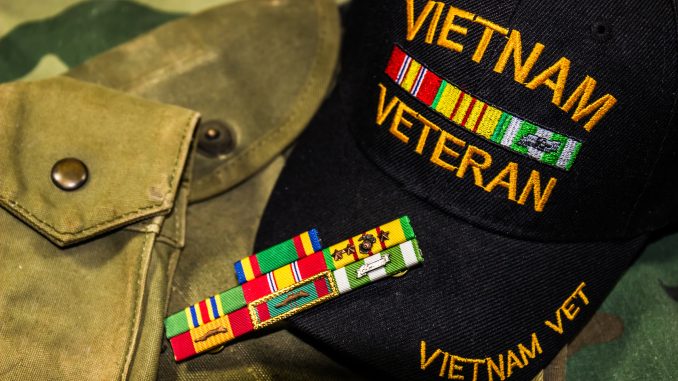
By Hank Russell
A bill that would expand care for Vietnam War veterans who suffered from bile duct cancer caused by a parasite passed the House of Representatives unanimously.
The Vietnam Veterans Liver Fluke Cancer Study Act, which was sponsored by U.S. Representative Nick LaLota (R-Rocky Point) and co-led by Pat Ryan (D-Poughkeepsie), an Army veteran and Member of the House Armed Services Committee, passed by a 411-0 vote.
The bill would instruct the Veterans Administration (VA) to conduct a comprehensive study to determine the prevalence of bile duct cancer among those who served in the Vietnam War and whether it may be connected to exposure to a parasite known as liver fluke during their service.
According to the VA’s website, Another risk factor for bile duct cancer (also known as Cholangiocarcinoma) is a past infection with tiny parasitic worms called liver flukes, which are found in the fresh waters of Southeast Asia. People can become infected by eating raw or under-cooked fish that have these parasites. Once eaten, the liver flukes grow to adulthood inside the human biliary duct system. The irritation and scarring caused by liver fluke infection can lead to bile duct cancer.
In 2018, the Northport Veterans Affairs Medical Center in New York conducted a groundbreaking study on liver fluke infection among Vietnam Veterans, using a 50-Veteran sample size. Although the study was smaller than most, its findings highlighted an urgent need for a larger-scale investigation, the development of standardized treatment protocols, and expanded access to care for affected Veterans at VA facilities nationwide.
Following this, the Department of Veterans Affairs (VA) initiated the Vietnam Era Veterans Mortality Study, comparing mortality rates from cholangiocarcinoma (bile duct cancer) between Veterans deployed to the Vietnam War theater and those who served elsewhere. The study suggests a potential link between exposure to parasitic infections, contracted through contaminated freshwater fish, and a heightened risk of cholangiocarcinoma among Vietnam Veterans.
Despite this evidence, during a Legislative Hearing before the House Veterans Affairs Subcommittee on Health, the Veterans Health Administration (VHA) indicated that the VA does not support further research on the topic. Additionally, the VA has yet to designate cholangiocarcinoma as a service-connected condition, despite the findings of the Vietnam-era study.
Last year, LaLota — a U.S. Navy veteran and a member of the Military Construction and VA Appropriations Subcommittee — introduced the bill. It passed the House, but failed to make it through the Senate.
“This week, the House took bipartisan action to do what the VA has refused to for more than six years — acknowledge the suffering of Vietnam Veterans exposed to liver fluke in Southeast Asia.” LaLota said. “My bill, the Vietnam Veterans Liver Fluke Cancer Study Act, passed with broad support because both sides agree: these heroes deserve answers, not more delay.”
“Too many have already died waiting,” LaLota continued. “It’s past time we matched our words with action and gave these Veterans the care and recognition they’ve earned.”

